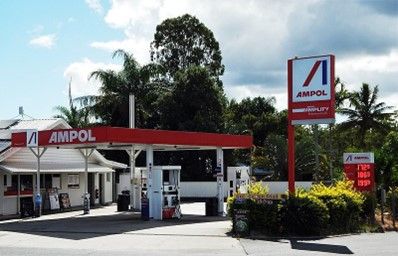- within Environment, International Law and Finance and Banking topic(s)
- in Africa
The INTA conference took place in Washington a few weeks back and there was an interesting article in the INTA Daily News about what has been described as deceased or expired brands, otherwise known as "dead brands".
Dead brands
The article kicks off with this statement: "The birth of a new brand is usually accompanied by hopes and dreams of a long and successful market life. But, as we all know, brands die for a variety of reasons - a host of unpredictable factors including commercial realities, shifting consumer sentiment, cultural sensitivities, and ill-gained notoriety can all prove fatal."
The author cites various examples of dead brands - TAB (the soft drink), Woolworths, Uncle Ben's and Aunt Jemima - in South Africa, the brand Woolworths is, of course, in very good health, but has died in certain parts of the world.
Recall value
Most dead brands do just what we expect the dead to do - nothing! But the author suggests that in some cases, it may be possible to keep them doing what they did when they were alive and kicking: earn money. This could occur through the sale of the brand, or perhaps through the licensing of the brand to a third party. The reason, of course, is that some dead brands may well have a "recall value" in the minds of consumers. One expert quoted in the article says that "based on the level of this recalling power, a dead brand can be resurrected."
Examples of such resurrections are provided:
- Polaroid. The company went into bankruptcy in 2008, but in 2017 a Dutch company bought the brand and used it for old-school mechanical cameras.

- Toys "R" Us. The company went into bankruptcy in 2008, but in 2021 the new owner WHP Global licensed it to department store Macy's.

- Ampol. Chevron terminated the trade mark licence agreement it had with Caltex Australia, which had allowed the Australian company to use the trade mark Caltex for its service stations. The company then revived the trade mark Ampol, a brand that it had used before it had rebranded to Caltex, and one that it had continued to use on a limited number of forecourts for the duration of the Caltex agreement. The article claims that this worked out very well for the Australian company, saving it a fortune in licensing fees.

Traction and brand equity
Much, depends on whether the dead brand still has traction. The author mentions Pan Am, the famous US airline that ceased operating in 1991, as a brand that still has considerable traction and brand equity. This is so much so that there is a company that holds the rights to the Pan Am trade marks (words and logos) and licences them to third parties.
But some dead brands, of course, have a negative or toxic image. The author makes the somewhat obvious point that "in cases where the brand clearly reflects a negative image, which may happen due to changing cultural sensitivities, the trademark should not be used."
Some law
Trade marks are registered for a fixed term, usually 10 years, and they can generally be renewed for similar terms. A company that allows one of its brands to die therefore needs to decide whether it is going to renew the trade mark registrations that it has for the brand, or whether it will allow them to lapse. The article suggests that it might be worth keeping the registrations alive where it is possible to do so, in other words, in those countries where there is no obligation to prove use on renewal. But a trade mark registration can, of course, be attacked for non-use. In most countries, non-use for a period of at least five years is required.
The article goes further. It suggests that, even in those countries where renewal may not be possible, it might be worth filing fresh trade mark applications in order to obtain a further grace period, in other words, a period in which there is no requirement to use the trade mark. This may be problematic in that there is generally a requirement for an applicant for registration to have a genuine intention to use the mark which it is seeking to register.
These legal issues are, of course, issues that your trade mark lawyer would be able to advise on.
The content of this article is intended to provide a general guide to the subject matter. Specialist advice should be sought about your specific circumstances.


